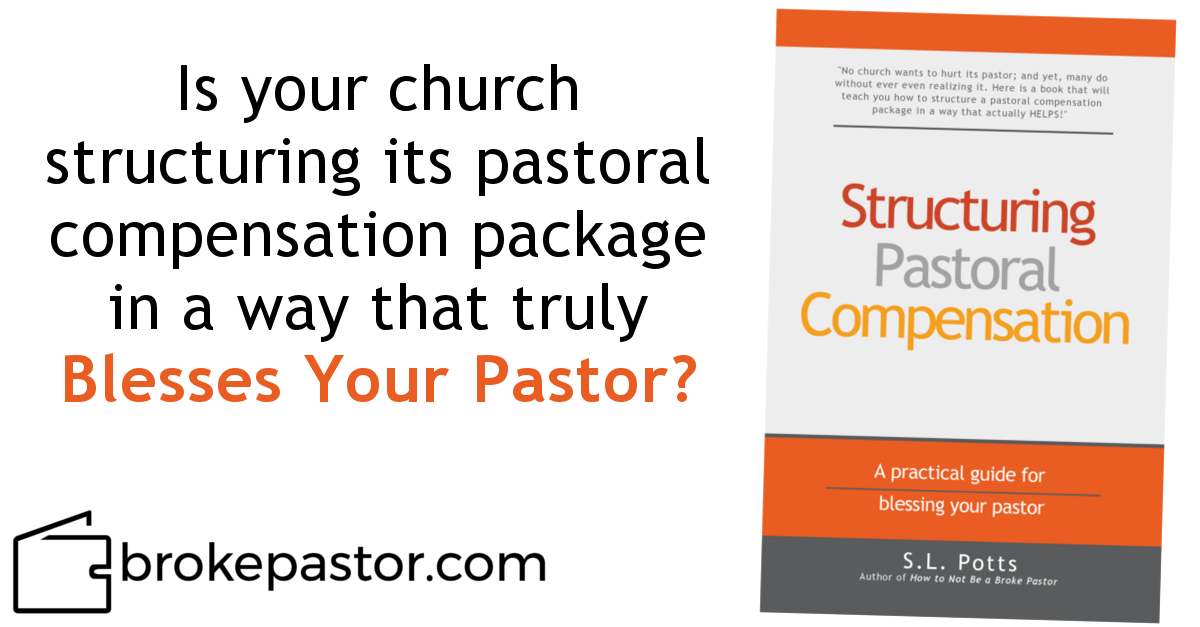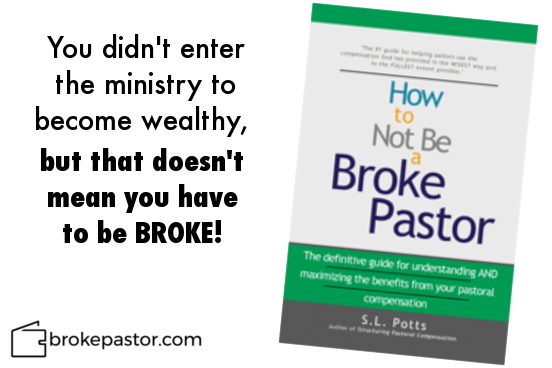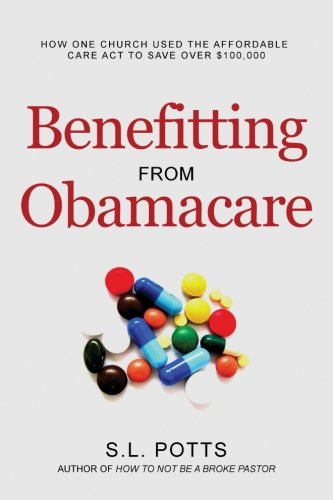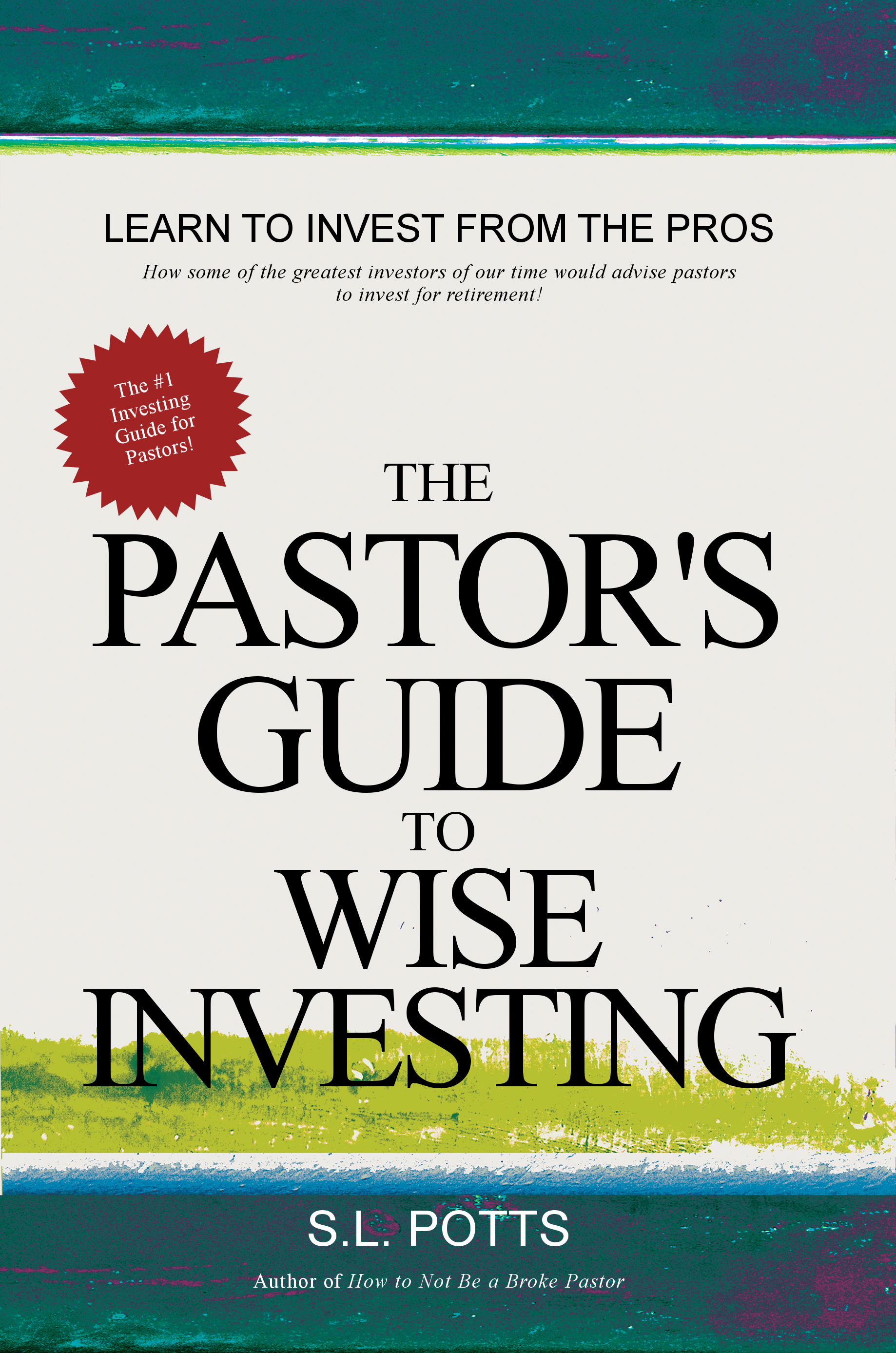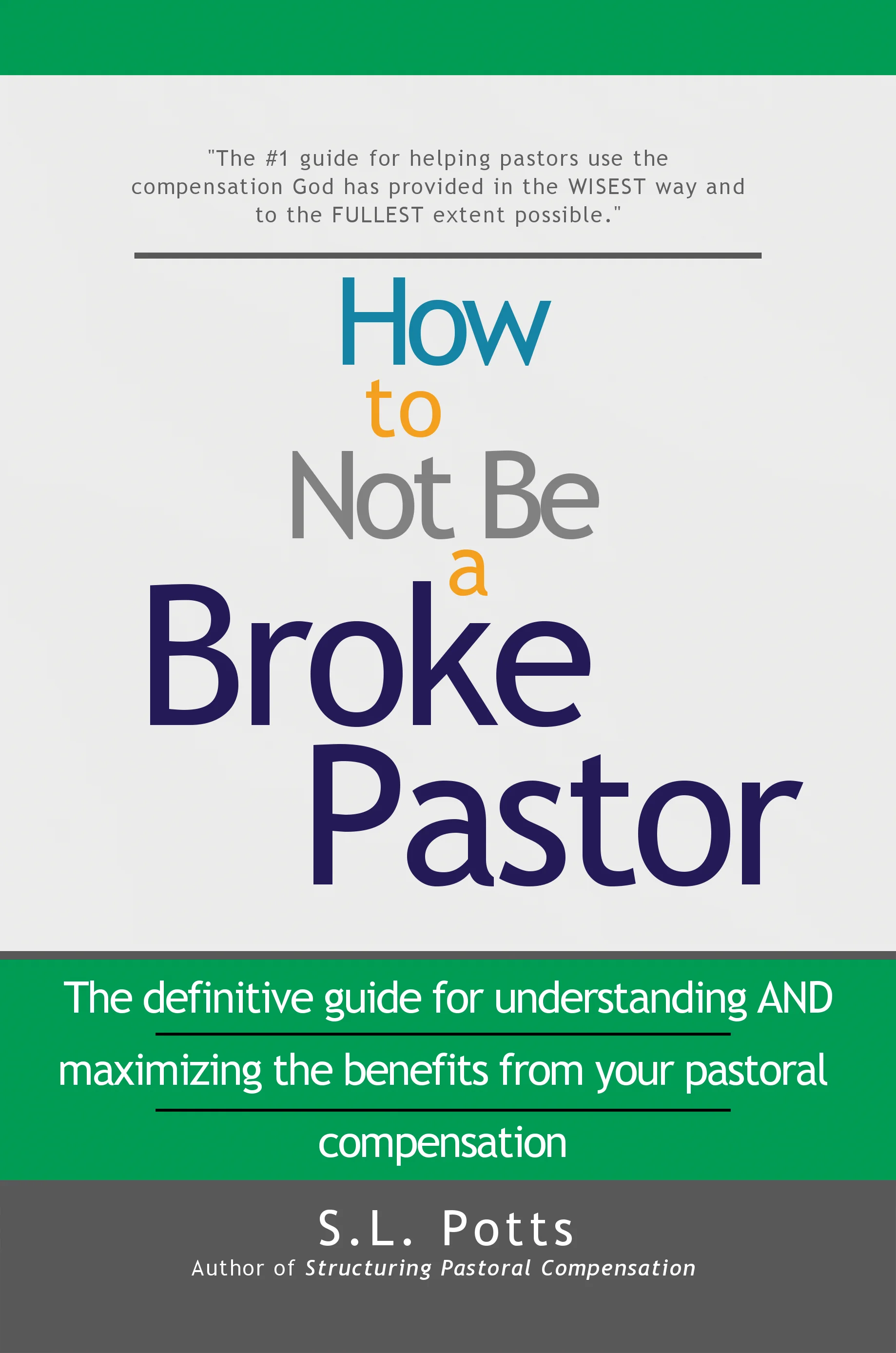Please share this post with as many pastors as you can.
Ever since Judge Crabb’s ruling last week declaring the clergy housing allowance to be unconstitutional, I have seen a LOT of discussion and hypothesizing online about what would happen if this ruling were to be finally and fully upheld by the courts. Some of these hypotheses have been good and reasonable; some of them have not. In light of these various discussions, I thought I’d take a stab at thinking through and analyzing what would happen . . . not because I think my hypotheses are any better than anyone else’s, but to try to help provide a framework for our thinking and discussions going forward.
Two Related, Foundational Issues
I think we have to begin this journey by reminding ourselves of the two big issues connected to this discussion – A) the dual-status nature of a pastor’s employment, and B) the pastor’s ability to opt-out of Social Security/Medicare.
Let’s start with the dual-status nature of a pastor’s employment. For those of you who are not aware, pastors are, I believe, unique amongst all American tax payers in that they are classified by the IRS as being both common-law employees and self-employed contractors at the same time and for the same job. For the purposes of federal income tax, pastors are considered to be common-law employees just like any other employee. However, for the purposes of Social Security and Medicare taxes, they are considered to be self-employed contractors.
The Housing Allowance (HA) is directly tied to this dual-status classification. In our current setup, pastors must only pay federal income tax on the non-HA portion of their income. So, for example, if a pastor makes $50,000/year in income, but designates $20,000/year as HA, he only has to pay federal income tax on $30,000.
But when it comes to Social Security and Medicare taxes, due to the pastor being considered a self-employed contractor for these areas, he has to pay 15.3% of his full income in SECA taxes. For example, if a pastor makes $50,000/year, he must pay $7,650 in SECA taxes regardless of his HA designation.
The above examples assumed that the pastor did not live in a church-provided home (i.e. parsonage), but the same principles apply when a pastor does live in such a home. For example, if a pastor makes $30,000/year in income and lives in a parsonage with a fair-market rental value of $20,000/year, he will only have to pay federal income taxes on his $30,000/year income, but will have to pay SECA taxes (15.3%) on the value of his income AND the parsonage - $50,000 x 15.3% = $7,650. As you can see, it works the same either way.
The second issue we must consider is the pastor’s ability to opt-out of paying Social Security and Medicare taxes. Again, in our current setup, pastors may request to be exempted from paying SECA taxes by filing Form 4361 with the IRS affirming that they have an honest, religiously-based objection to contributing to Social Security or Medicare out of their ministerial income.
For example, if a pastor who has opted out of SECA makes $50,000/year, and designates $20,000/year of his income as being HA, he will only have to pay federal income taxes on $30,000 and will not have to pay SECA on any of his income. The same would apply to pastors who live in parsonages.
The reason I bring these two other issues up is because both are connected to the HA, and in all of the talk surrounding the court case, I’ve yet to see much, if any, discussion about how changes to the HA would affect either of these issues or vice versa.
That said, should the HA be fully and finally ruled unconstitutional (for both cash HAs and parsonages), I suspect that both of these items may also be in jeopardy. So, now that we understand these two foundational issues, let’s think through five possible scenarios.
Scenario #1 - Housing allowance ends . . . pastors are still dual-status employees AND can continue to opt-out of SECA
If the HA were to come to an end, but pastors are still considered to be dual-status employees and can still opt-out of SECA, the only thing that would change would be that pastors would now have to pay federal income tax on their full income.
Let’s consider four examples using "Pastor Bob." For each example, we’ll assume that Pastor Bob is married, has two children, and only claims the standard deduction on his 1040 (nothing else).
Example #1: Pastor Bob receives $50,000/year in cash income, does not live in a parsonage, and has not opted out of SECA. In his case, the only change for him is that he will now have to pay more in federal income taxes. Under the current tax rules, he would pay $8,570 in federal income taxes and SECA – leaving him with a net income of $41,430. In our hypothetical example, he would pay $11,097.50 in federal income taxes and SECA – leaving him with a net income of $38,902.50. This would result in a net loss of $2,527.50/year for Pastor Bob.
Example #2: Pastor Bob receives $50,000/year in cash income, does not live in a parsonage, and has opted out of SECA. In his case, the only change for him is that he will now have to pay more in federal income taxes. He would still be exempt from SECA. Under the current tax rules, he would pay $920 in federal income taxes – leaving him with a net income of $49,080. In our hypothetical example, he would pay $3,447.50 in federal income taxes – leaving him with a net income of $46,552.50. This would result in a net loss of $2,527.50/year for Pastor Bob.
Example #3: Pastor Bob receives $30,000/year in cash income, lives in a parsonage with a fair-market rental value of $20,000/year, and has not opted out of SECA. In his case, the only change for him is that he will now have to pay more in federal income taxes. He would continue to pay 15.3% of his total income (including the fair-market rental value of the parsonage) in SECA. Under the current tax rules, he would pay $8,570 in federal income taxes and SECA – leaving him with a net income of $21,430. In our hypothetical example, he would pay $11,097.50 in federal income taxes and SECA – leaving him with a net income of $18,902.50. This would result in a net loss of $2,527.50/year for Pastor Bob.
Example #4: Pastor Bob receives $30,000/year in cash income, lives in a parsonage with a fair-market rental value of $20,000/year, and has opted out of SECA. In his case, the only change for him is that he will now have to pay more in federal income taxes. He would still be exempt from SECA. Under the current tax rules, he would pay $920 in federal income taxes – leaving him with a net income of $29,080. In our hypothetical example, he would pay $3,447.50 in federal income taxes – leaving him with a net income of $26,552.50. This would result in a net loss of $2,527.50/year for Pastor Bob.
NOTE: Please note that, in all of these examples, I am not calculating the effect that any above-the-line deductions (e.g. one-half of SECA, traditional IRA contributions, etc.) or any below-the-line deductions other than the standard deduction would have on these numbers. Most pastors will have both above-the-line and below-the-line deductions that will reduce the impact of any these hypothetical situations on their personal taxes. Consider these to be over-simplified, "worst case" scenarios for illustration and example purposes ONLY.
Scenario #2 - Housing allowance ends . . . pastors are still dual-status employees BUT can no longer opt-out of SECA
If the HA were to come to an end, and pastors are still considered to be dual-status employees BUT can no longer opt-out of SECA, a number of things would change.
Let’s consider four examples using "Pastor Bob." For each example, we’ll assume that Pastor Bob is married, has two children, and only claims the standard deduction on his 1040 (nothing else).
Example #1: Pastor Bob receives $50,000/year in cash income, does not live in a parsonage, and has never opted out of SECA. In his case, the only change for him is that he will now have to pay more in federal income taxes. He would continue to pay 15.3% of his total income in SECA. Under the current tax rules, he would pay $8,570 in federal income taxes and SECA – leaving him with a net income of $41,430. In our hypothetical example, he would pay $11,097.50 in federal income taxes and SECA – leaving him with a net income of $38,902.50. This would result in a net loss of $2,527.50/year for Pastor Bob.
Example #2: Pastor Bob receives $50,000/year in cash income, does not live in a parsonage, and has opted out of SECA. In his case, not only will he now have to pay more in federal income taxes, but he will have to begin paying 15.3% of his total income in SECA. Under the current tax rules, he would only pay $920 in federal income taxes – leaving him with a net income of $49,080. In our hypothetical example, he would now pay $11,097.50 in federal income taxes and SECA – leaving him with a net income of $38,902.50. This would result in a net loss of $10,177.50/year for Pastor Bob.
Example #3: Pastor Bob receives $30,000/year in cash income, lives in a parsonage with a fair-market rental value of $20,000/year, and has not opted out of SECA. In his case, the only change for him is that he will now have to pay more in federal income taxes. He would continue to pay 15.3% of his total income (including the fair-market rental value of the parsonage) in SECA. Under the current tax rules, he would pay $8,570 in federal income taxes and SECA – leaving him with a net income of $21,430. In our hypothetical example, he would pay $11,097.50 in federal income taxes and SECA – leaving him with a net income of $18,902.50. This would result in a net loss of $2,527.50/year for Pastor Bob.
Example #4: Pastor Bob receives $30,000/year in cash income, lives in a parsonage with a fair-market rental value of $20,000/year, and has opted out of SECA. In his case, not only will he now have to pay more in federal income taxes, but he will have to begin paying 15.3% of his total income in SECA taxes. Under the current tax rules, he would pay $920 in federal income taxes – leaving him with a net income of $29,080. In our hypothetical example, he would pay $11,097.50 in federal income taxes and SECA – leaving him with a net income of $18,902.50. This would result in a net loss of $10,177.50/year for Pastor Bob.
NOTE: Please note that, in all of these examples, I am not calculating the effect that any above-the-line deductions (e.g. one-half of SECA, traditional IRA contributions, etc.) or any below-the-line deductions other than the standard deduction would have on these numbers. Most pastors will have both above-the-line and below-the-line deductions that will reduce the impact of any these hypothetical situations on their personal taxes. Consider these to be over-simplified, "worst case" scenarios for illustration and example purposes ONLY.
Scenario #3 - Housing allowance ends . . . pastors are now considered self-employed contractors AND can continue to opt-out of SECA
If pastors are only viewed as self-employed contractors but are still given the ability to opt-out of SECA, then I would assume that the results would be the same as Scenario #1 above.
Scenario #4 - Housing allowance ends . . . pastors are now considered self-employed contractors BUT can no longer opt-out of SECA
If pastors are only viewed as self-employed contractors but are no longer given the ability to opt-out of SECA, then I would assume that the results would be the same as Scenario #2 above.
Scenario #5 - Housing allowance ends . . . pastors are now considered common-law employees
This is one of the more interesting possible outcomes. If the HA were to come to an end, and pastors are no longer considered to be dual-status employees but are now considered to be common-law employees, they would no longer be required to pay SECA, but would pay FICA like any other employee (which means that the church and the pastor would split the cost of FICA taxes). I would also assume that Congress would not pass a law allowing pastors to opt-out of FICA in this hypothetical scenario.
Let’s consider four examples using "Pastor Bob." For each example, we’ll assume that Pastor Bob is married, has two children, and only claims the standard deduction on his 1040 (nothing else).
Example #1: Pastor Bob receives $50,000/year in cash income, does not live in a parsonage, and has never opted out of SECA. In his case, he will now have to pay more in federal income taxes, but will pay less in FICA than he used to pay in SECA. Under the current tax rules, he would pay $8,570 in federal income taxes and SECA – leaving him with a net income of $41,430. In our hypothetical example, he would pay $7,272.50 in federal income taxes and FICA – leaving him with a net income of $42,727.50. This would result in a net gain of $1,297.50/year for Pastor Bob.
Example #2: Pastor Bob receives $50,000/year in cash income, does not live in a parsonage, and has opted out of SECA. In his case, not only will he now have to pay more in federal income taxes, but he will have to begin paying 7.65% of his total income in FICA taxes. Under the current tax rules, he would only pay $920 in federal income taxes – leaving him with a net income of $49,080. In our hypothetical example, he would now pay $7,272.50 in federal income taxes and FICA – leaving him with a net income of $42,727.50. This would result in a net loss of $6,352.50/year for Pastor Bob.
Example #3: Pastor Bob receives $30,000/year in cash income, lives in a parsonage with a fair-market rental value of $20,000/year, and has not opted out of SECA. In his case, he will now have to pay more in federal income taxes, but will pay less in FICA than he used to pay in SECA. Under the current tax rules, he would pay $8,570 in federal income taxes and SECA – leaving him with a net income of $21,430. In our hypothetical example, he would pay $7,272.50 in federal income taxes and FICA – leaving him with a net income of $22,727.50. This would result in a net gain of $1,297.50/year for Pastor Bob.
Example #4: Pastor Bob receives $30,000/year in cash income, lives in a parsonage with a fair-market rental value of $20,000/year, and has opted out of SECA. In his case, not only will he now have to pay more in federal income taxes, but he will have to begin paying 7.65% of his total income in FICA taxes. Under the current tax rules, he would pay $920 in federal income taxes – leaving him with a net income of $29,080. In our hypothetical example, he would pay $7,272.50 in federal income taxes and FICA – leaving him with a net income of $22,727.50. This would result in a net loss of $6,352.50/year for Pastor Bob.
NOTE: Please note that, in all of these examples, I am not calculating the effect that any above-the-line deductions (e.g. one-half of SECA, traditional IRA contributions, etc.) or any below-the-line deductions other than the standard deduction would have on these numbers. Most pastors will have both above-the-line and below-the-line deductions that will reduce the impact of any these hypothetical situations on their personal taxes. Consider these to be over-simplified, "worst case" scenarios for illustration and example purposes ONLY.
Final Results
As you can see, the only winners from any of these scenarios would be the pastors in Scenario #5 who did not opt of SECA (a net gain of $1,297.50/year). The biggest losers would be the pastors in Scenario $2 who did opt out of SECA (a net loss of $10,177.50/year).
Other Affected Areas
As you can see above, I only focused on the effect that losing the HA would have on income, Social Security, and Medicare taxes. There would be other negative ramifications – smaller tax refunds for many pastors, higher monthly premiums for pastors who get their health insurance through one of the Obamacare exchanges, and smaller churches having to reduce a pastor’s salary to cover the church’s portion of FICA taxes. I’m sure more could be listed in time.
How Should Pastors/Churches Prepare Now?
This is the most important question for today. As it stands, the recent ruling by Judge Crabb will be appealed, and that process could take a couple of years. If the appellate court were to affirm her decision, I have no doubt the case would be appealed to the Supreme Court. One commentator suggested that the absolute soonest pastors and churches could be affected is 2020. Wisdom, though, would suggest that the time to prepare is now.
First, pastors and churches need to stay informed. To see a listing of various articles dealing with this topic, click here.
Second, pastors and churches should not panic, but should begin considering their options now so that they are not caught off-guard 3-4 years from now. Remember, planning prevents panic!
Third, both pastors and churches should consider how they structure their current pastoral compensation so as to ensure pastors are properly cared for - particularly in light of these issues.
For pastors, they need to learn how to balance their salary and housing allowance properly. My book, How to Not Be a Broke Pastor is written exclusively for pastors/ministers and is designed to make the complexities of clergy pay simple and easy to understand, and also to give you ideas as to how you can use your income to the greatest extent possible.
For churches, they need to learn how to structure their pastor’s compensation packages so as to help them receive the maximum possible benefit. My book, Structuring Pastoral Compensation, is written for church decision-makers (Elders, Deacons, Trustees, Committee Members, etc.) to help them understand what should be included in their pastor's compensation and how to best implement the various pieces so that their pastor will be truly blessed.
The key takeaway here is: Don’t wait. Think through your current setup and be aware of what changes could come. Structure your compensation correctly now so that you are ready no matter what happens next.
Stacy Potts is a pastor, author, and consultant specializing in pastoral compensation and church finance issues. He lives in Virginia Beach, VA, with his wife, Jamie, and their two children, Nathaniel and Hannah. Visit his website at www.brokepastor.com.

